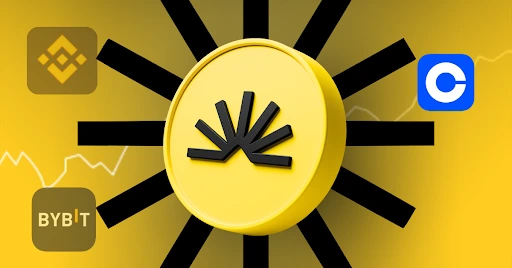
The convergence of artificial intelligence and blockchain technology is rapidly reshaping the digital landscape, creating fertile ground for innovative projects that marry these two cutting-edge fields. Among the forefront entrants is Sahara AI, which claims the distinction of being the first full-stack AI-native blockchain. Officially launching on June 26, 2025, Sahara AI aims to revolutionize AI development and monetization by providing an accessible, transparent, and decentralized ecosystem tailored specifically for AI applications. This examination delves into Sahara AI’s foundational technologies, market dynamics, and the challenges that lie ahead, unpacking the factors fueling its rapid ascent.
Sahara AI’s proposition is unique in that it does not merely retrofit existing blockchain infrastructure to accommodate artificial intelligence; instead, it constructs its platform from the ground up with AI’s specific needs in mind. Central to its architecture is a modular zero-knowledge framework designed to prioritize privacy—an essential feature given the growing global concerns over data security, ethical AI use, and regulatory pressures. This approach ensures that AI models can be created, trained, and monetized within a decentralized environment that safeguards sensitive information. A particularly notable component of Sahara AI’s ecosystem is the Sahara AI Agent Builder and AI Marketplace, launched concurrently with key exchange listings. These tools empower developers to deploy decentralized AI applications, broadening participation beyond a niche of specialists to a wider community of creators and innovators. By emphasizing practical utility and fostering an AI-driven economy, Sahara AI seeks to transcend speculative trends common in cryptocurrency markets.
The project’s market introduction has been marked by an aggressive and well-coordinated exchange listing strategy. $SAHARA, the native token, debuted simultaneously on Binance Alpha and several other major exchanges including KuCoin, OKX, Bitget, MEXC, CoinW, and Gate.io among others. This multi-exchange availability immediately boosted liquidity and investor accessibility, facilitating global participation. The presence of reputable venture capital backers such as Binance Labs, Polychain Capital, and Pantera Capital not only lends credibility but also hints at strong institutional interest. The market responded with remarkable enthusiasm; following its Binance Alpha announcement on June 21, 2025, $SAHARA’s price soared by over 40,000% against the US Dollar. On launch day, the token’s rapid climb from an initial trading price of $0.02000 to $0.14030 within minutes demonstrated intense buying pressure and a burgeoning appetite for AI-centric blockchain projects. This price movement underscores the significant demand poised for platforms that can effectively integrate AI functionality into decentralized structures.
Community engagement has been another pillar of Sahara AI’s launch strategy. The team deployed an extensive airdrop campaign aimed at early adopters and ecosystem participants. These programs, including Data Services and Sahara Legends, allowed users to earn Sahara Points and Shard Points redeemable for $SAHARA tokens, fostering loyalty and creating an engaged user base invested in the platform’s success. This strategic use of rewards not only stimulates token circulation but also cultivates an active, vibrant community essential for decentralized projects. Sahara AI also maintains robust outreach through social media platforms like X (formerly Twitter), providing regular updates and interactive sessions that enhance transparency and trust—two critical elements in the development of sustainable blockchain ecosystems.
Beyond the immediate market excitement, Sahara AI is making significant technological strides. The SIWA public testnet, launched in May 2025, represents a pioneering effort to establish an on-chain platform that ensures AI asset ownership and provenance tracking. This feature addresses pressing concerns about data integrity and intellectual property protection in AI development, allowing models and datasets to be registered and verified on the blockchain. Such transparency can mitigate risks of data misuse and unauthorized replication—issues that have long plagued AI applications outside decentralized settings. The roadmap anticipates a full mainnet launch by mid-2025, which will mark the transition from testnet experimental stages to a fully operational ecosystem where AI applications can be built, deployed, and monetized at scale. This progression emphasizes on-chain data sharing with verifiable provenance as a cornerstone, promising to elevate standards in how AI resources are managed within the Web3 paradigm.
However, Sahara AI’s ambitious vision comes with significant challenges. The AI blockchain sector is already crowded with numerous competitors ranging from established blockchain projects integrating AI capabilities to startups forging new directions. Sahara AI’s capacity to maintain its competitive edge hinges on continued innovation, developer ecosystem growth, and successful onboarding of leading AI researchers. The volatility endemic to cryptocurrency markets poses an ongoing risk to token price stability, which could impact user confidence and project funding. Additionally, the regulatory landscape surrounding AI and cryptocurrencies is still evolving, creating legal ambiguities that could hinder expansion or adoption. Technically, building a fully functional AI-native blockchain that can seamlessly support complex AI workloads requires deep expertise and constant development to overcome performance and scalability constraints. That Sahara AI must navigate this milieu while fulfilling its technological promises underscores the complexity of its long-term journey.
In sum, Sahara AI stands out as a notable entrant in the AI-blockchain fusion space, leveraging novel technology and a strong market strategy to generate significant momentum. Its innovative architecture, broad exchange presence, thriving community incentivization, and early-stage technological milestones collectively position it as a contender to shape decentralized AI innovation. Still, the path from promising startup to dominant platform is fraught with challenges. Sahara AI’s ultimate success will depend on sustaining technological breakthroughs, nurturing a robust ecosystem, and managing market and regulatory uncertainties. The project has laid essential groundwork, but its ability to deliver on a comprehensive AI-native blockchain vision will determine its lasting impact in the intertwining worlds of AI and Web3.




